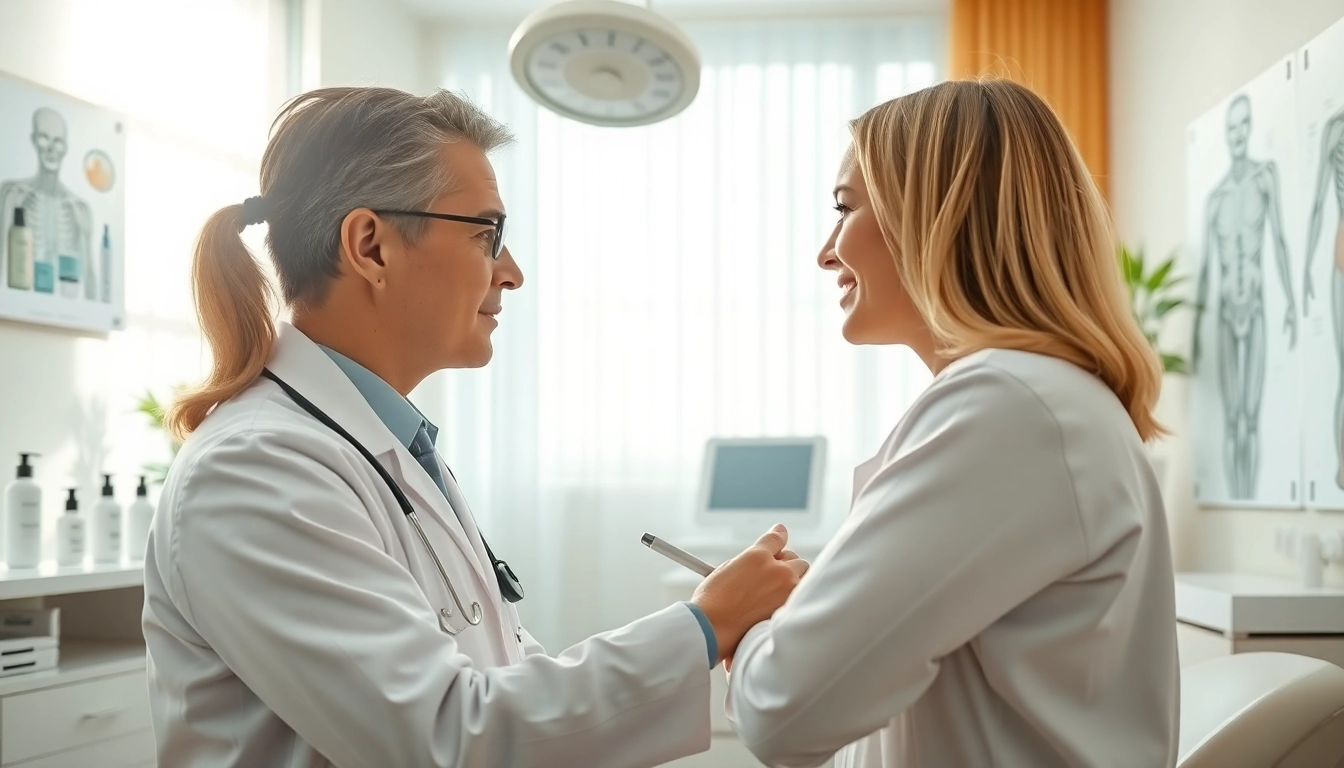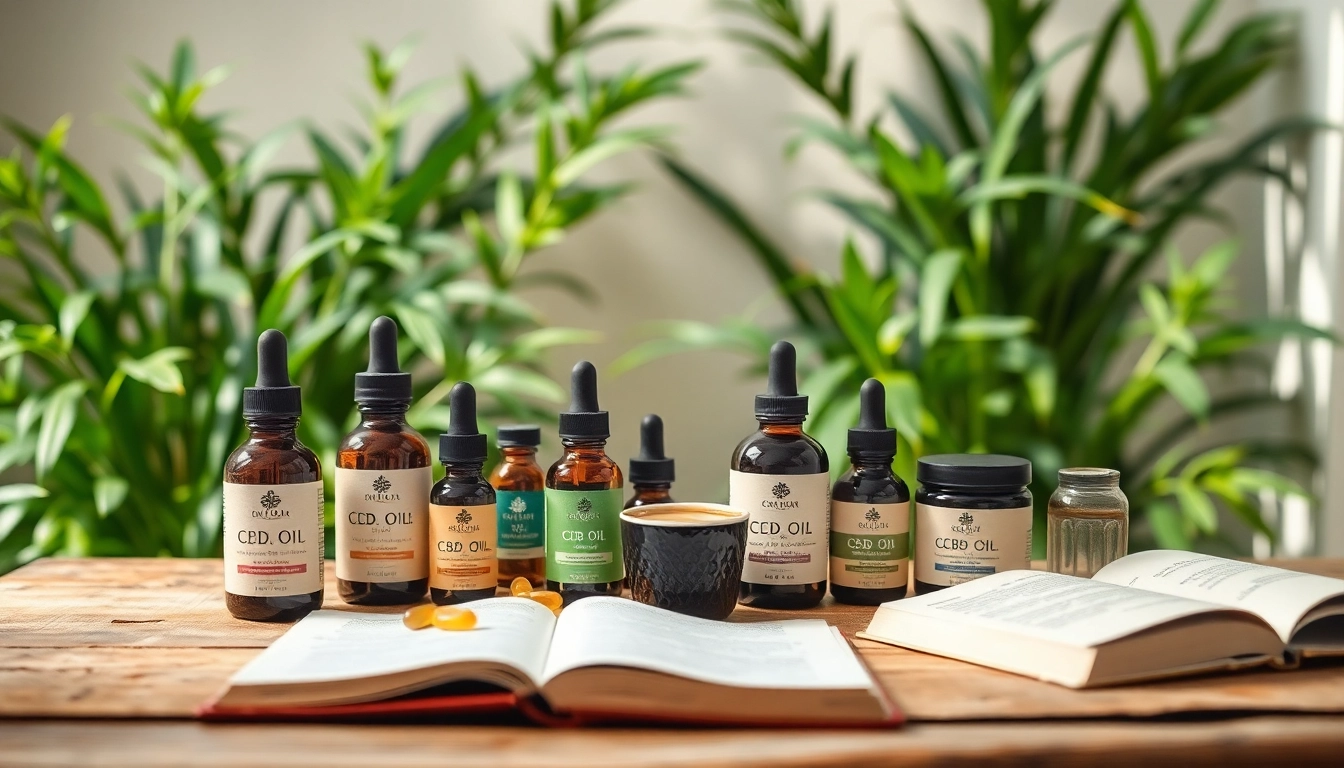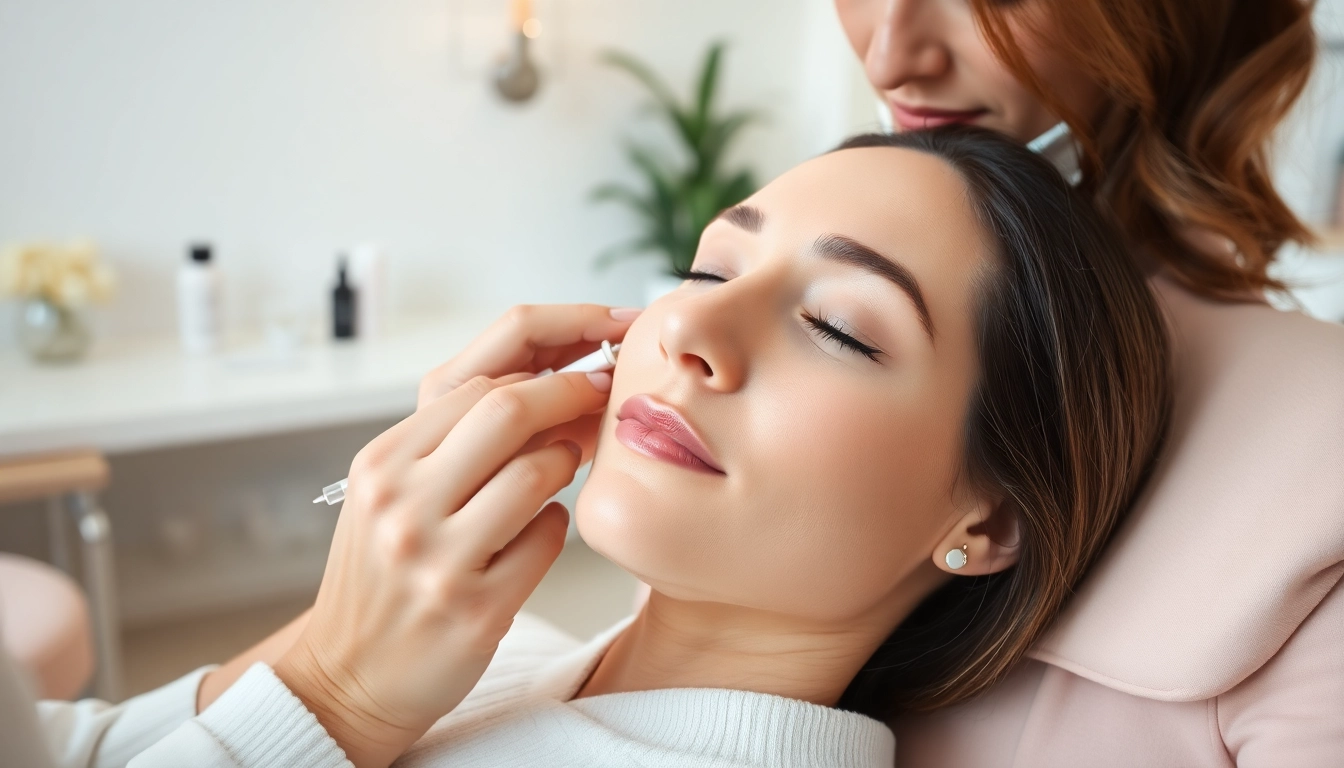Understanding Acne: Causes and Types
Acne is one of the most common skin conditions affecting millions of people worldwide, often starting in adolescence and continuing into adulthood. Understanding the underlying factors that lead to acne breakouts is crucial in determining effective treatment options. To effectively manage this condition, it’s important to comprehensively explore the various causes and types of acne. For those struggling with acne and seeking effective solutions, professional Acne Treatment can be an invaluable resource.
Common Causes of Acne
Acne is primarily caused by the combination of excess oil production, clogged hair follicles, bacteria, and inflammation. However, several factors can exacerbate these issues:
- Hormonal Changes: Fluctuations in hormones, especially during puberty, menstruation, or pregnancy, can lead to increased oil production and subsequent acne outbreaks.
- Diet: Certain foods, particularly those high in refined sugars and dairy, have been linked to acne development.
- Stress: Elevated stress levels can trigger hormonal changes that may worsen acne symptoms.
- Genetics: A family history of acne can predispose individuals to similar skin conditions.
- Certain Medications: Some drugs, such as corticosteroids or hormonal contraceptives, can contribute to acne development.
Different Types of Acne
Acne manifests in various forms, and recognizing the type of acne is essential for selecting appropriate treatments. The main types include:
- Comedonal Acne: This includes open comedones (blackheads) and closed comedones (whiteheads), which occur when hair follicles become clogged with oil and dead skin cells.
- Inflammatory Acne: This consists of papules (small red bumps), pustules (pimples filled with pus), and cysts (painful lumps deep under the skin) that develop due to inflammation in the follicle.
- Acne Vulgaris: The most common form, it can range from mild to severe and encompasses all the previous types.
- Hormonal Acne: Typically triggered by hormonal fluctuations, this type commonly appears along the jawline and chin in women.
How to Identify Your Acne Type
To effectively treat acne, identifying its type is crucial. Consideration should be given to the following:
- Observe the location of the breakouts; hormonal acne tends to cluster on the jawline.
- Evaluate the texture of the breakout. For instance, cystic acne is often painful and deep under the surface.
- Consider the timing of the outbreaks; for example, if they coincide with menstrual cycles, hormonal influences may be at play.
Proven Treatments for Acne
There are numerous treatment options available for acne, ranging from topical solutions to oral medications. Understanding what works best for each situation can significantly enhance treatment efficacy.
Topical Treatments: What Works Best?
Topical treatments are often the first line of defense against acne:
- Benzoyl Peroxide: This antibacterial agent works by reducing inflammation and unclogging pores.
- Salicylic Acid: A beta hydroxy acid (BHA), it exfoliates the skin, helping to prevent clogged pores.
- Retinoids: Topical retinoids, such as adapalene and tretinoin, promote cell turnover and prevent pore blockage.
- Antibiotics: For inflammatory acne, topical antibiotics can reduce bacterial growth and inflammation.
Oral Medications for Severe Cases
In cases of severe acne, oral medications may be required:
- Oral Antibiotics: Medications like doxycycline and minocycline help combat bacteria and reduce inflammation.
- Oral Contraceptives: In women, certain contraceptive pills can regulate hormones and improve acne symptoms.
- Isotretinoin: A powerful medication used for severe, cystic acne that has not responded to other treatments. It reduces oil production and prevents clogged pores.
Alternative and Natural Remedies
In addition to conventional treatments, some individuals may explore alternative options:
- Tea Tree Oil: Known for its antibacterial properties, tea tree oil can be applied topically to reduce acne.
- Green Tea Extract: High in antioxidants, it may help reduce acne by decreasing inflammation and oil production.
- Zinc Supplements: Some studies suggest that zinc can improve acne symptoms due to its anti-inflammatory properties.
Skincare Routine for Acne-Prone Skin
A consistent skincare routine can significantly impact acne management. Here are essential steps to consider:
Daily Skincare Steps to Combat Acne
Implementing a structured skincare routine is vital:
- Cleanse gently with a suitable cleanser that does not irritate the skin.
- Apply a topical treatment as advised, such as benzoyl peroxide or retinoids.
- Moisturize with a non-comedogenic moisturizer to maintain hydration.
Choosing the Right Products
Select products labeled as “non-comedogenic,” which means they don’t clog pores. Look for the following ingredients:
- Salicylic Acid
- Benzoyl Peroxide
- Alpha Hydroxy Acids (AHAs)
Common Mistakes to Avoid
To maximize treatment effectiveness, individuals should avoid:
- Over-cleansing or using harsh scrubs that irritate the skin.
- Picking or squeezing pimples to prevent scarring.
- Using too many products at once, which can overwhelm the skin.
Prevention Strategies for Acne Breakouts
Prevention is as important as treatment for managing acne:
Lifestyle Changes to Reduce Acne
Incorporate lifestyle modifications aimed at minimizing breakouts:
- Practice stress-reduction techniques, such as mindfulness or yoga.
- Avoid touching the face with unwashed hands to limit bacteria transfer.
- Regularly change pillowcases and towels to maintain hygiene.
Diet and Its Impact on Skin Health
Diet can play a significant role in skin health. Consider the following dietary tips:
- Limit sugar intake and refined carbohydrates, which may trigger acne.
- Include plenty of fruits, vegetables, and whole grains in your diet.
- Stay hydrated by drinking sufficient water throughout the day.
Understanding the Role of Stress Management
Managing stress effectively can lead to notable improvements in skin condition:
- Engage in regular physical activity to boost mood and reduce stress levels.
- Consider relaxation techniques like deep-breathing exercises or meditation.
When to Seek Professional Help for Acne Treatment
While many cases of acne can be managed at home, certain indicators suggest it’s time to consult a dermatologist:
Signs That Indicate a Need for Medical Advice
Seek professional help if:
- Acne is persistent or worsening despite over-the-counter treatments.
- Scarring or significant skin changes occur.
- Acne is causing emotional distress or affecting daily life.
What to Expect During a Dermatology Consultation
During your appointment, expect the following:
- The dermatologist will evaluate your skin condition and discuss your acne history.
- They may recommend specific treatments tailored to your acne type and severity.
- Expect personalized guidance on skincare routines and lifestyle modifications.
Long-term Management Strategies for Acne
Acne management often requires a comprehensive, long-term approach. Consider the following strategies:
- Follow the dermatologist’s recommended regimen consistently for the best results.
- Regular follow-up appointments may be necessary to monitor progress.
- Patience is essential, as it may take weeks to see significant improvement.



